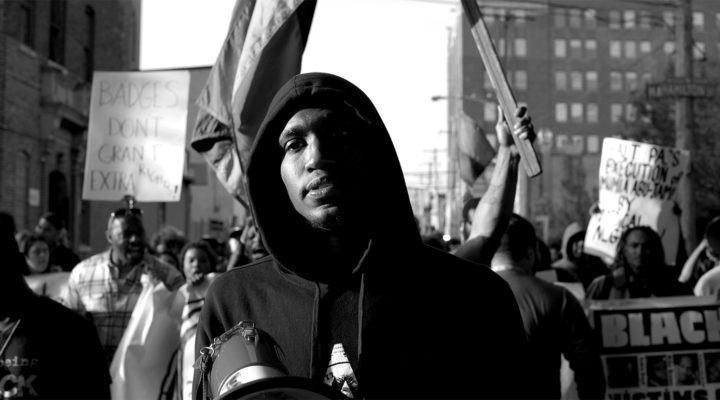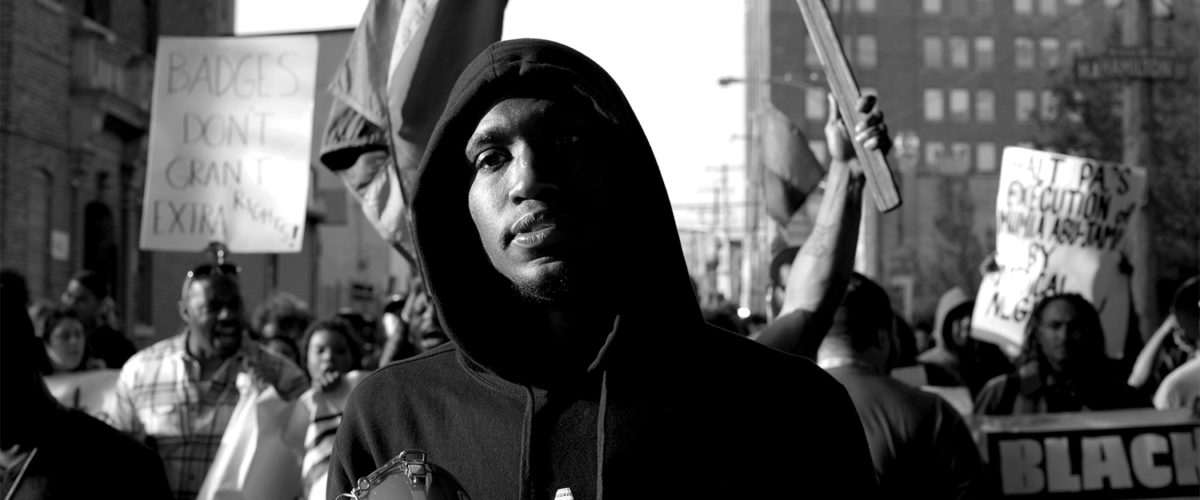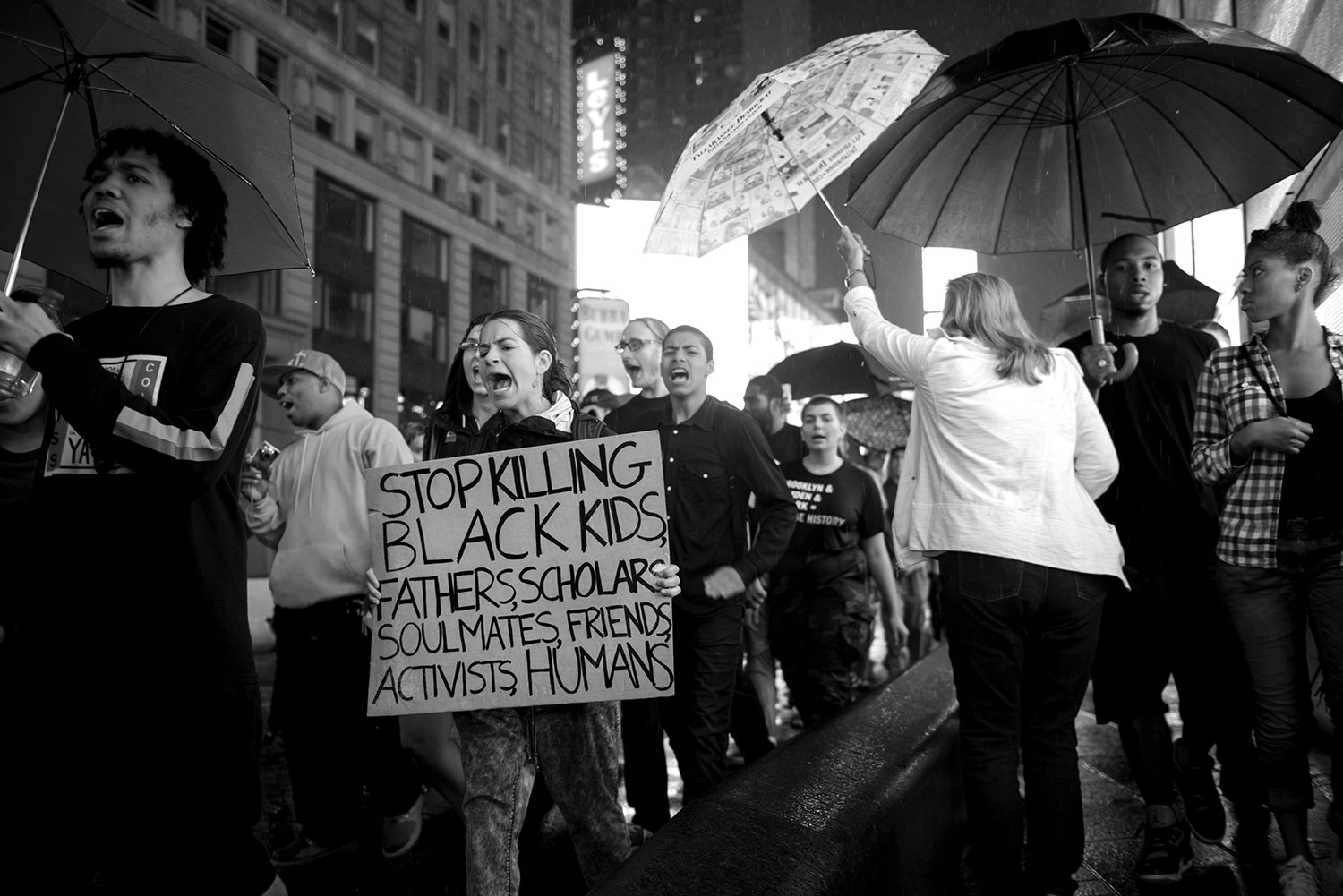The summer of 2016 has been dubbed by some the Summer of Justice. As the presidential candidates held their conventions, unrest in America could no longer be contained.
Demonstrations by grassroots chapters of the Black Lives Matter movement demanded justice again and again as video after video went viral showing black men and women beaten and killed by police officers.
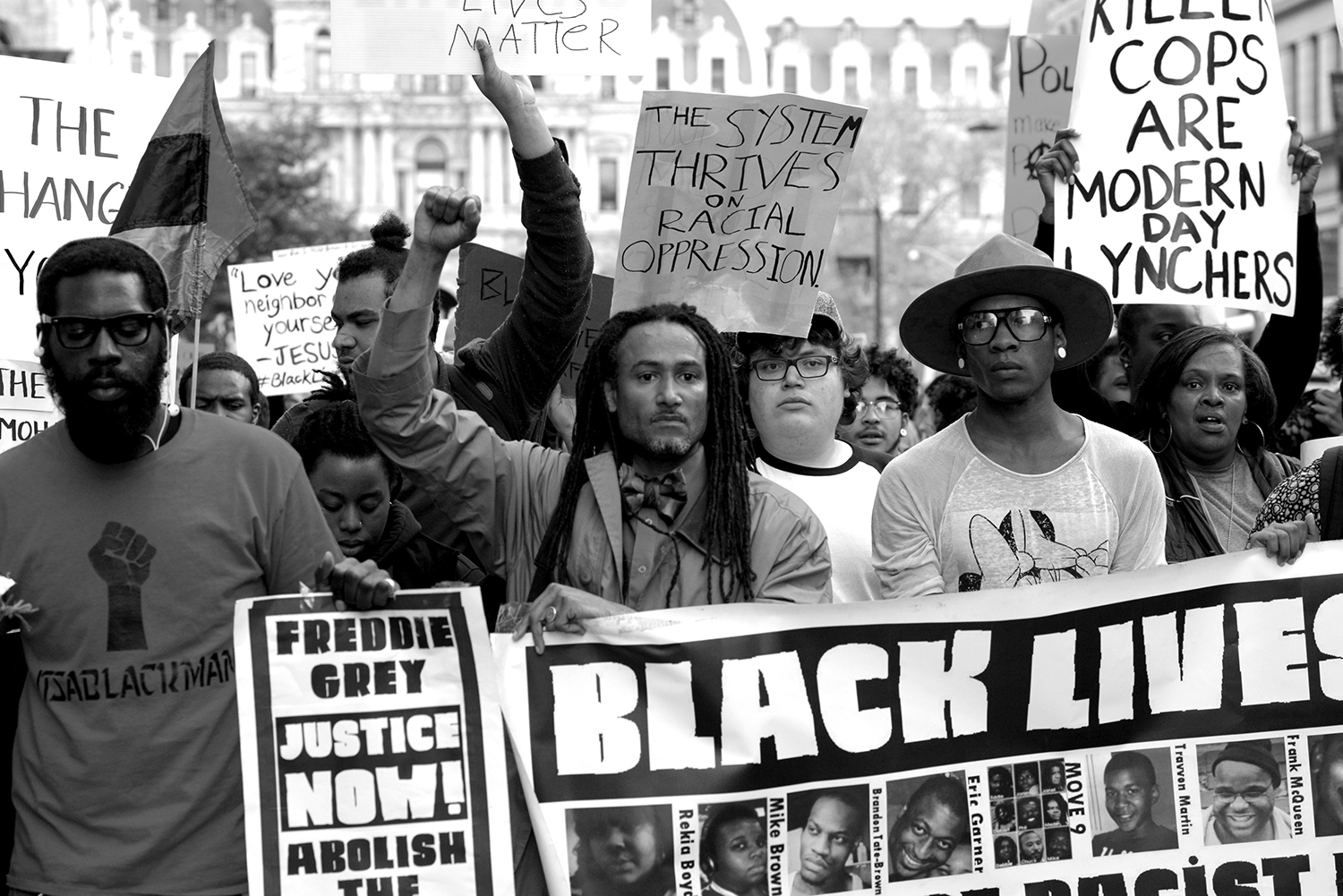
Protestors in support of the national ‘Black Lives Matter’ movement gathered at Dillworth Plaza in Philadelphia (Photo/Bastiaan Slabbers)
The images were hauntingly similar to photographs and newsreels from 50 and 60 years ago.
Brutality in action was captured in stark visual statements impossible to ignore. Protesters blocking highways demanded justice. But there’s a striking contrast between the Civil Rights Movement of the 1950s and ‘60s and the current Black Lives Matter movement: the absence of churches.
The movement that never really ended
As a white child growing up in a small Southern town in the late 1970s and ’80s, for me the Civil Rights Movement was a chapter in a history textbook. Like so many children, I assumed that if it happened before I was born it was “history” — a discrete chapter in the long story of our nation, summed up with some review questions at the end of the unit. I attended, and later taught in, integrated public schools of varying levels of diversity. But even with a college degree in history, I taught civil rights the same way — a chapter in American history that was over and done with.
What my white privilege allowed me to ignore were the myriad symptoms of institutional racism that persisted throughout my childhood and to this day — problems that society has yet to fully acknowledge, much less address or “solve.” Mass incarceration of disproportionate numbers of black males, suppression of voting rights and biased policing are the obvious problems, in addition to the widespread and more subtle racism present in workplaces and schools that have yet to fully embrace equality.
Silent churches
In the decades since the Civil Rights Movement, white churches have been mostly silent about institutional racism. Members of my all-white church served our community through programs for mental health patients and distribution of food to the poor. But no one talked openly about the chronically disadvantaged or the unjust systems that kept them there. Preaching about such things would be … too political.
Blogger Elle Dowd, a Lutheran candidate for ordination, calls this phenomenon “white niceness” and afflicts the comfortable with this indictment:
“We say we value niceness, but the truth is that we care more about being polite and comfortable than we care about liberation. We are worshipping at the altar of Niceness instead of following the cross of Christ. This is an abuse of priorities that is abhorrent to the God who introduces herself over and over as the one who “brought us out of the house of slavery.”
The wake-up call for many in the pews of white churches in my small town was the acquittal of George Zimmerman in the murder of young Trayvon Martin. The blatant and egregious error of impunity committed by the jury turned the floodlights on the cancerous blight of racism that had gone unchecked so long.
Distraught, our congregation turned to our neighbors at a nearby African Methodist
Episcopal church for answers. “What’s going on?” we wondered. “How can we help?”
The compassionate, yet tired response was, “Oh honey, this has been going on forever. This isn’t new.”
In the three years since, we’ve embarked on relationship building with our black brothers and sisters in Christ, seeking to listen and to understand America through a different lens. And so when news of this summer’s police shootings of black men went viral, we turned again to our AME neighbors, showing up en masse at their Sunday service to stand in solidarity.
The emotional service we’d just finished at our all white church, with a bold sermon about respecting the dignity of every human being, stood in stark contrast to the calm that met us at the AME service. There was little to no mention of the events of the past week, the service proceeding as usual with a sermon on Ruth and needing “spiritual refueling.”
Afterward one of the church elders, an elegant, beautiful woman who exudes wisdom, greeted me.
“We are so glad that you came to be with us today,” she said.
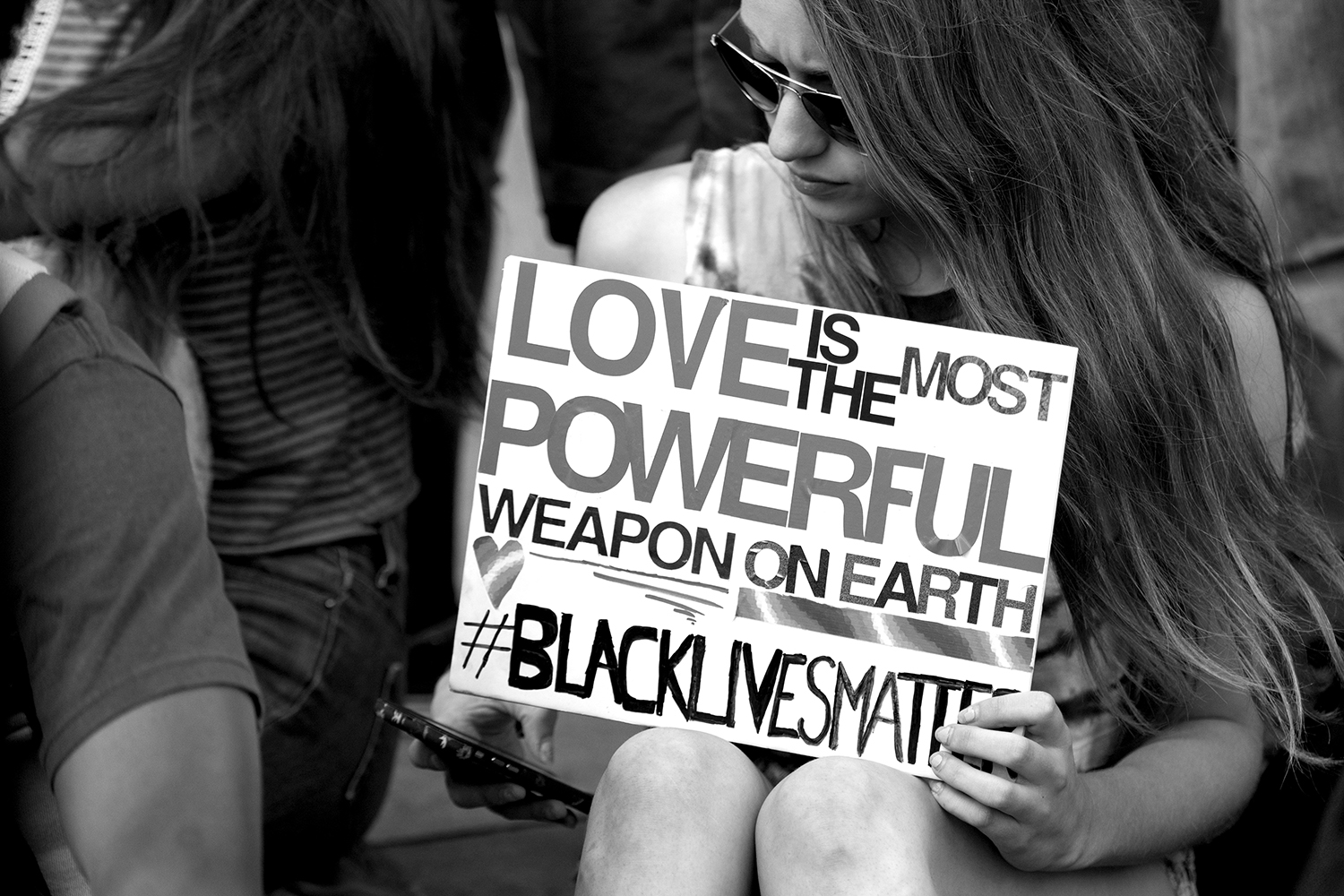
Black lives matter protestor holding a poster during march on City Hall following ruling on LAPD fatal shooting of African American female Redel Jones. (Photo/br-photo)
With tears in my eyes, I replied, “I needed to be with you all today. This week has been just awful. I feel at such a loss as to what to do.”
“Oh, honey,” she said, “It’s gonna be OK. It’s hard to believe that sometimes, because it all seems so scary. But we are people of faith, and we know it’s gonna be OK.”
Moral responsibility and the churches’ response
This kind of collective wisdom of the black church is needed as Black Lives Matter gains momentum. The rooting of the earlier movement in the gospel theology that affirms the dignity of every human being provided a touchstone, a moral imperative, for activists.
But BLM has intentionally chosen to distance itself from the organizational structure of its predecessors. Mika Edmonson, in a May 2016 address to members of The Gospel Coalition, explained this choice.
“Black Lives Matter … prioritizes folks who have been historically marginalized in black liberation movements. It’s a self-consciously decentralized movement comprising mostly young black female leadership focused on voices outside the church or academia. In this way, Black Lives Matter is responding to the historic sexism that marked the Civil Rights Movement.”
In light of that fact, how are churches to respond to Black Lives Matter? So far, the response has been largely silence. Charlie Dates, senior pastor of Progressive Baptist Church in Chicago, laments,
“The black church has not historically engaged in social justice in lieu of the gospel. It does so because of the gospel. My generation will have to give an account for our strange silence in the wake of the #BlackLivesMatter movement. This is the first time that the black pulpit has not been at the forefront of the moral conversation of systemic injustice against black people in America.”
Why the silence from black churches? Demographics may hold one answer. The black church has not been immune to the generational decline that has devastated mainline white Protestant churches over the last several decades. Pews in white and black churches are disproportionally filled with gray-haired elders as younger generations increasingly describe themselves as “spiritual but not religious.”
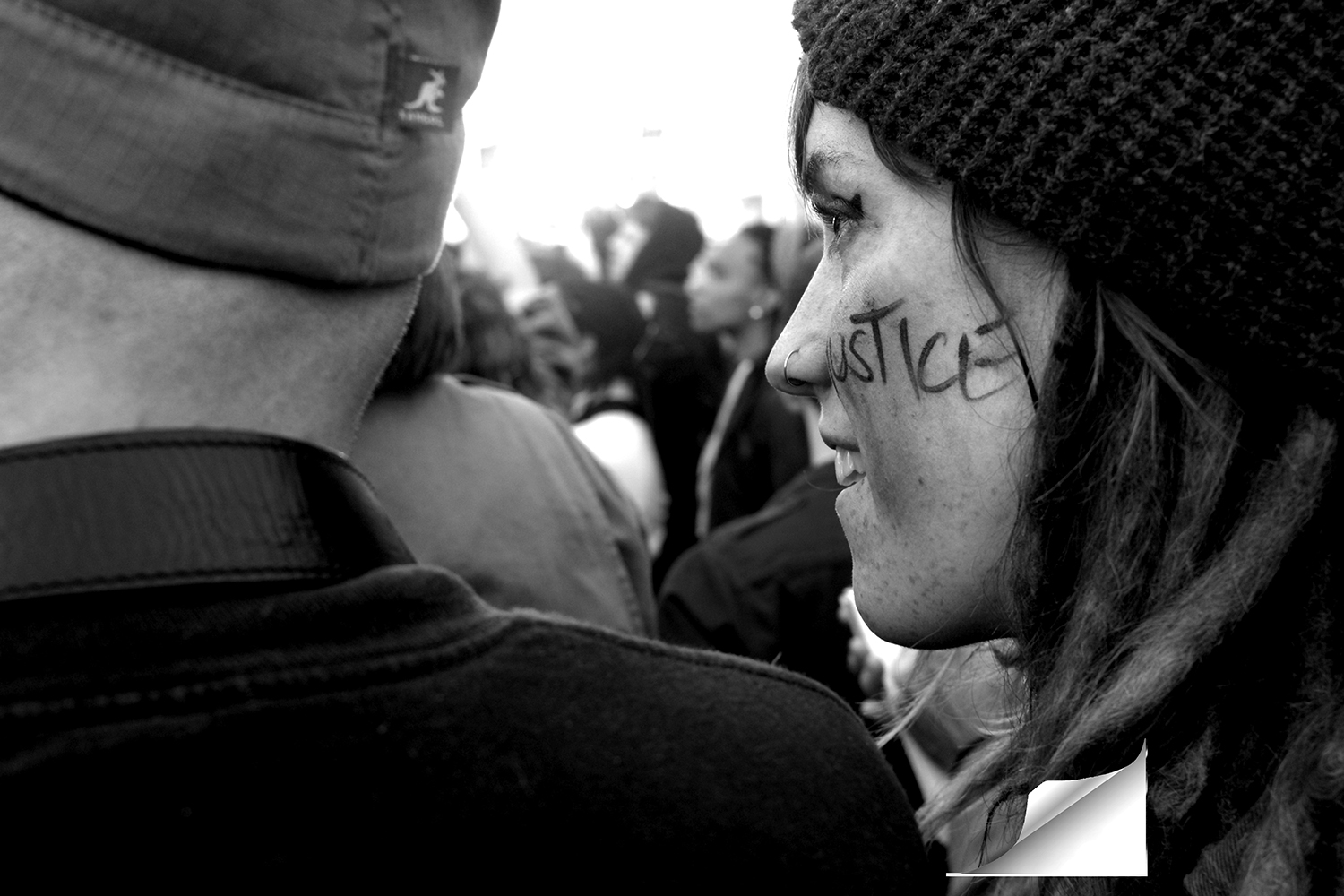
‘Justice’ is written on the cheek of a female protestor participating in a ‘Black Lives Matter’ rally in Philadelphia. Less then a thousand demonstrators rallied and marched in support of the national civic movement. (Photo/Bastiaan Slabbers)
It’s unfair to ask the elders who remain in the pews to actively get involved in this new movement. They did the work in their own day, they struggled and fought. It’s time for a new generation to take up the mantle and agitate for progress and reform.
In the face of drastically reduced membership, white churches can no longer sit on the sidelines and expect black churches to stand as the only voice of faith in support of Black Lives Matter. Instead, they must do what they failed to do 60 years ago — join with their faithful black brothers and sisters to call out the sin of racism. They must push beyond “white niceness” and dare to speak the uncomfortable truths in which their silence has made them complicit.
In a sermon at The Riverside Church in New York City, senior pastor Amy Butler criticized the overused response that so many well-meaning Christians repeat in the face of troubling events: “We should pray about it.” Instead, she implored the church to be modern-day prophets, defined by Walter Brueggemann as “called by God to have an impact on persons, to impinge upon perception and awareness, to intrude upon public policy and to evoke faithful and transformed behavior.”
In the midst of this renewed struggle, solidarity is the only option. Working together, white and black churches must use the benefits of white privilege informed by the wisdom and experience of the black church to faithfully engage as advocates of Black Lives Matter.
It’s not politics; it’s justice. Divine justice. We are called to act. May we answer faithfully and with courage.
— This article was first published in the September-October 2016 issue of Herald, BNG’s magazine sent five times a year to donors to the Annual Fund. Bulk copies are also mailed to BNG’s Church Champion congregations.

